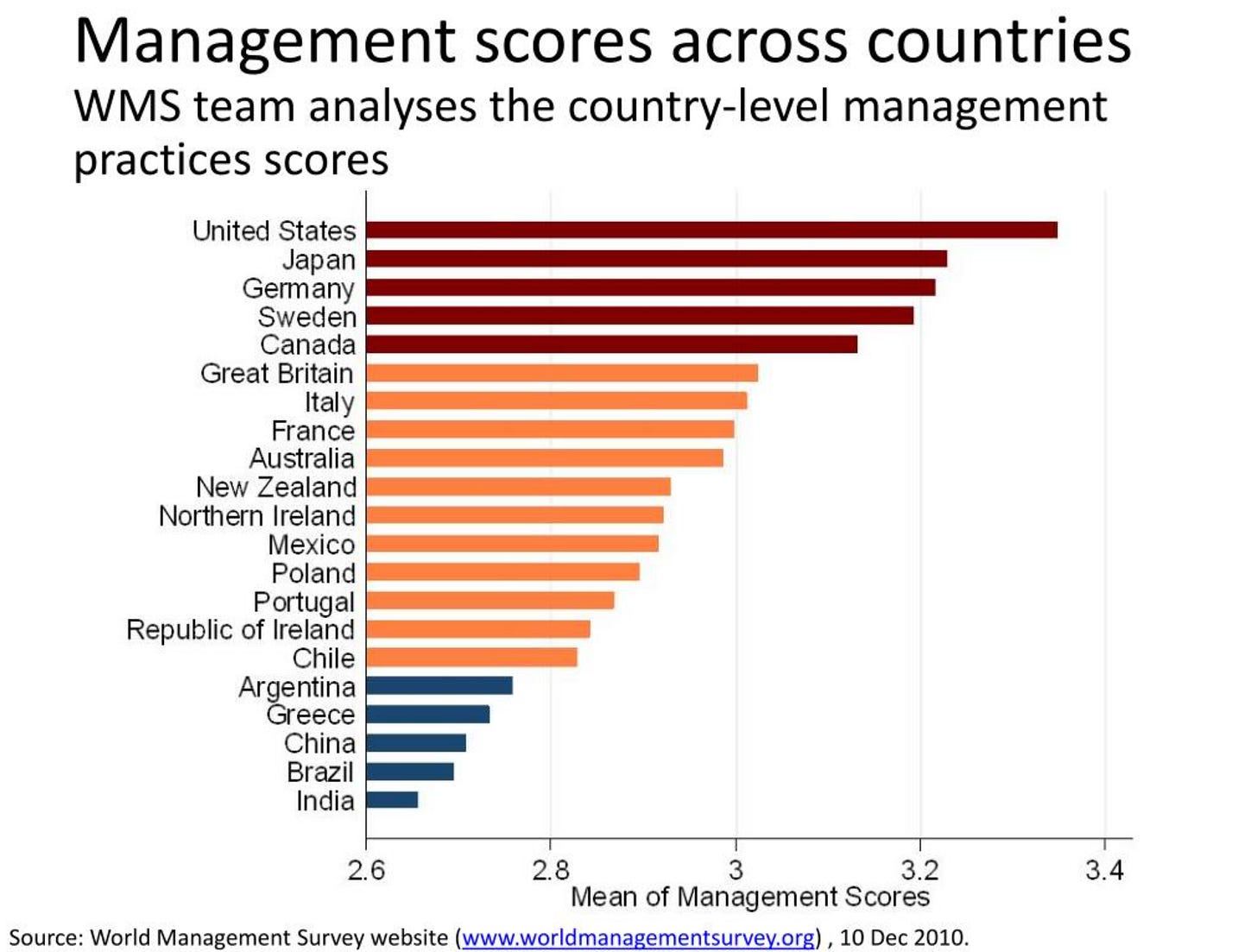Welcome to the 65 awesome new readers who joined us in the past 2 weeks!
If you haven’t subscribed, join 3,788 smart, curious people interested in Changing Greece.
Note: If you are a regular reader, you probably noticed there was no newsletter in your inbox yesterday. I missed a deadline! There will also be no issue this coming Friday. An extensive real life schedule means a small break is required. Normal posting will revert the week after. I apologize in advance and hope to minimize these gaps in the future. Wish you all a great weekend!
🕴️ Greek management culture sucks
If you work for a Greek company, there is a very good chance you hate your boss.
This is not a coincidence.
A large number of Greek (typically family owned) business owners are awful managers. On top of that, most senior managers lack even basic leadership skills. And the majority of middle managers never experienced any real mentorship so in turn become terrible handlers of junior members themselves. As a result, almost all young employees are miserable in their jobs.
It is a grim yet very real vicious cycle.
Greek management culture sucks from top to bottom.
And there is simply no sugarcoating it.
The Great Workplace paradox
Let’s start with a given: there is no perfect boss.
And yes, being a boss is often a thankless job that comes primarily with problems.
But a Greek business owner or manager that believes “well, this does not apply to me” should think again. Terrible management practices are extremely widespread in Greece. If you honestly believe that your leadership style or management culture is great, you are either an exceptionally rare endangered species or excellent in self-delusion.
(If you are a faithful reader of this publication, don’t worry, you are one of the good ones.)
In a uniquely Greek paradox, we have way more (advertorial) lists celebrating “great workplaces” than actual great workplaces in the country. But go ask a random employee in some of these highly-praised companies and the picture that emerges is often starkly different from what you hear in these shiny lists.
To be clear: a demanding manager, a high-paced workplace, a culture of ambition — all these are not problems but often key ingredients to successful companies.
But in Greece these are married with toxic environments of power (with few checks and balances), inhuman managerial behaviors (that are not just tolerated but rewarded), rampant sexism (especially from men in senior positions towards women in levels below them), the assumption that bosses own their employees (even beyond work), clever tricks to bypass labour laws (either not to pay Christmas/Easter bonuses or avoid clocking in overtime work), unclear goals about career progression (that either is ridiculously slow or just never comes) and almost no real mentorship opportunities (making bad behaviors accepted as normal and then copied ad infinitum).
Not every Greek company has these issues. Some are real gems in a vast sea of terribleness. But more than enough exhibit these bad behaviors to warrant talking about this issue openly and seriously.
What does the data say?
Enough with my polemic. Let’s look at the numbers now.
Only 44% of Greeks say that their company is a great place to work at.
This places us one step from the bottom (18th out of 19 European countries).

If we plot that against labour productivity, Greece is a uniquely negative outlier.

Clearly, the quality of our workplaces is also tied inextricably with how well we work compared to other countries.
And what about how long we work compared to our peers?
For yet another year, in 2024 Greece emerged as the country where people work the longest weekly hours in the EU (only Serbia and Turkey surpassed us, but neither is an EU Member State).

So, Greeks work long hours and also don’t work efficiently. Why?
Proper leadership is severely lacking in Greek workplaces.

Out of 19 European countries, Greece ranks:
17th in high trust leadership in the workplace
17th in leadership proximity skills in the workplace
16th in psychological safety of employees
Unfortunately, this is not a new reality. Greece has traditionally scored very low when it came to workplace management practices.
Time to change the picture
There is a great meme I’ve seen make the rounds about Greek office culture: “when the boss suddenly arrives, and everyone pretends they are working.”
Why is that? If you ask the average business owner, their reply will be “there is just not enough good talent out there willing to do the work.” And they are partly right: as I have often said in the past, the government’s current subsidies-on-steroids approach reduces incentives significantly for people to look for work.
But there is another piece to the equation: exceptional talent does not always find a great leader; however, a great leader can always shape exceptional talent.
It’s not rocket science. Few simple things can make all the difference:
Treat people as actual humans (not property of the company)
Pay employees what they deserve (not what businesses can get away with)
Provide clear guidelines about tasks and expectations for roles/progression
Reward great talent not just monetarily but with more responsibility
Have zero tolerance for disrespect and institute a “no assholes” policy
If you are already doing most (if not all) of that, then that’s fantastic. Not everyone does. In fact, most Greek companies don’t.
And if you think I’m exaggerating, I’m glad. Help prove me wrong by being a force of change and making sure that terrible management practices become a thing of the past in Greece, and not part of its present or even future.
Time to change the picture.
🏭 Economy & Business
Greece is a role model for Germany according to the Chancellor’s close confidant
Greece wants to repay bailout loans 10 years ahead of time
ATHEX (Greek stock exchange) reached a 15-year high in May
Qualco’s IPO (first globally in the Trump era) was a huge Greek success
Housing market in-affordability: the drivers behind the new Greek reality
Industrial production index continues moving upwards but at a reduced pace
Inflation finally decelerated to 2%, but still holds strong
Greek Orthodox refugees that were forced to emigrate from Anatolia to Greece have had a continuous positive effect on the country’s economy
🤖 Tech & Startups
Techcrunch is bullish on Greece’s potential after its in-country event
Marathon VC announced new €75M fund, backed (also) by EIF and HDBI
Plum is now betting big on Greece, and sharing interesting investing trends
Space startups incubated in Greece? You heard that right.
Defense startups: a taboo in Greece just a few years ago, now the hottest commodity as all eyes have turned towards EU’s ReArm €800 fund initiative
Lars Rasmussen argues that startups are key to Greece’s brain gain
Vasileios Millas built a tool that shows how accessible Athens is to pedestrians
🙌 Celebrating Greek wins
The Hellenic-American Meeting of Early-Career Researchers held their inaugural symposium in May aiming to connect top-level academics of Hellenic descent
The Hellenic Studies Program at Yale, as well as all other Hellenic language programs around the world, deserve our praise and support
Dennis Assanis steps down after a very successful decade as President of University of Delaware
📊 Spotlight: A statesman from a different era
Konstantinos Tsatsos was the second President of the Third Hellenic Republic.
I recently bumped into an interview he gave to Nikos Dimou back in 1987. The full interview from ERT’s archives is worth listening to but parts of it are also included in a great documentary from the Vouli channel (see below).
The difference with Greece’s politicians today is striking. Listening to Tsatsos speak, I was left with a deep sense of reverence for the past but also a sad feeling that such iconic and committed leaders are extremely rare today.
That’s it for today! If you enjoyed today’s newsletter, please let me know with a like or reply. And if you value my content each week, consider pledging your support. Thanks!







Excellent article as always TGA. I agree with Mariathena. Just to add also the ‘quota’ filling approach for women employees or C-level positions that the vast majority of companies apply
I would like to also to point out the poor state of the NED situation in Greek companies .
Nepotism, family entanglement , no merit assessment .
Even listed companies are lacking in quality NED s .